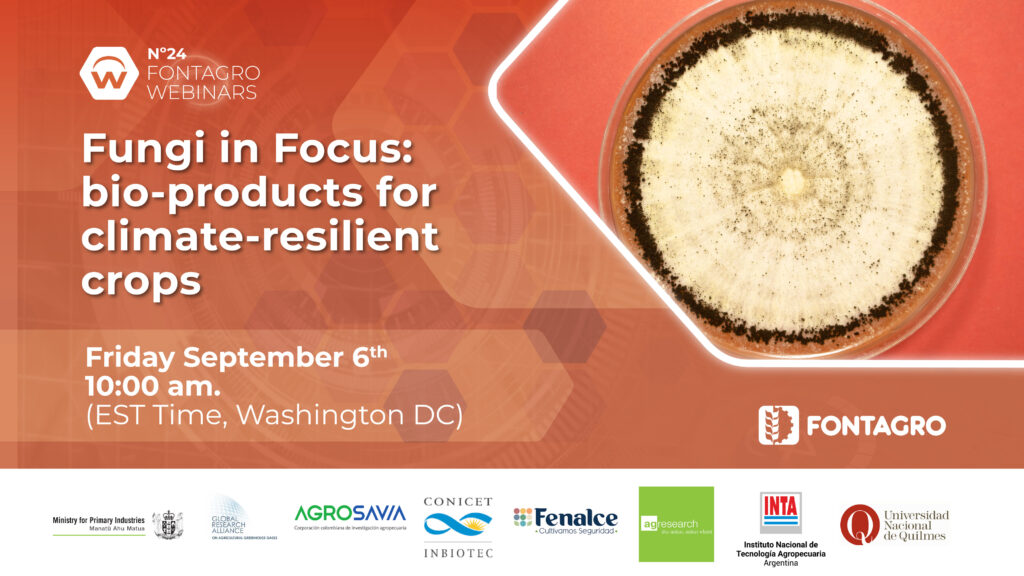
This event, led by FONTAGRO, the Ministry for Primary Industries (MPI) of the New Zealand Government, the Global Research Alliance on Agricultural Greenhouse Gases (GRA), the Colombian Corporation of Agricultural Research (AGROSAVIA) – Colombia, the Institute of Biodiversity and Biotechnology Research (INBIOTEC) – Argentina, the National Federation of Cereal, Legume, and Soybean Growers (FENALCE) – Colombia, AgResearch – New Zealand, the National Institute of Agricultural Technology (INTA) – Argentina, and the National University of Quilmes (UNQUI) – Argentina, aims to socialize how these organizations seek to generate a strategy to improve maize production (+5%) and resilience to climate change through the use and integration of beneficial fungi.
This innovation aims to utilize previously evaluated microbiological biodiversity (for its biopesticidal and biofertilizer capacity) seeking added value through its integration, which contribute to mitigating the effects of climate change.
The event will take place next Friday, September 6th at 10:00 am (US Eastern Time, Washington D.C.) and its schedule varies according to the time zones, as detailed below:
– 09:00 am (Bogotá, Colombia)
– 11:00 am (Buenos Aires, Argentina)
The link to register for this event is available at: https://forms.office.com/r/g1LAmViMRH
The webinar will be broadcasted through: https://www.youtube.com/live/xmsMMPLnrnM?si=DFTWDglzb_6Su_Kn
***
About FONTAGRO
FONTAGRO was created 1998 with the purpose of promoting the increase of the competitiveness of the agri-food sector, ensuring the sustainable management of natural resources and the reduction of poverty in the region. The objective of FONTAGRO is to establish itself as a sustainable financing mechanism for the development of agricultural technology and innovation in Latin America and the Caribbean and Spain, and to establish a forum for the discussion of priority topics of technological innovation. The member countries are: Argentina, Bolivia, Chile, Colombia, Costa Rica, Ecuador, Spain, Honduras, Nicaragua, Panama, Paraguay, Peru, Dominican Republic, Uruguay and Venezuela. In the last 27 years 204 regional agricultural innovation platforms have been co-financed for an amount of US $ 150.7 million, which has reached 531 institutions and 35 countries worldwide.
